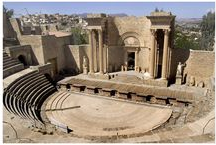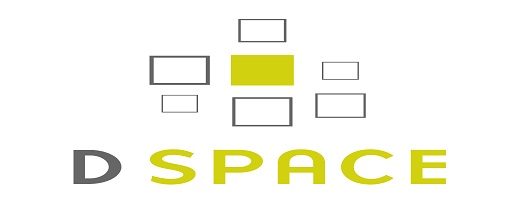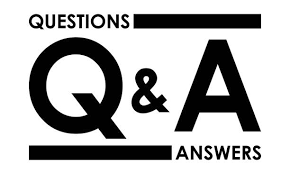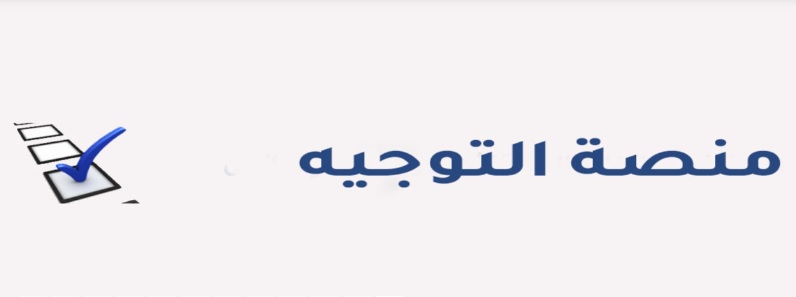University Rules
Preamble
Section I: Organization and conduct of studies
Chapter I: General Provisions
Chapter Two Registration and re-registration
Chapter Three: Academic Holiday
Chapter Four: Organization of Education
Chapter V: Guardianship
Chapter 6: Absences
Chapter 7: Abandonment and Reintegration
Part Two: Pedagogic Evaluation and Transition
Chapter 1: Knowledge Control
Chapter Two: Correction and re-correction of the examination papers
Chapter 3: How to acquire the educational unit and hexagon
Chapter Four: Committee of Deliberations
Part Three: Graduation in Studies
Chapter I: Graduation in the studies of the Bachelor
Chapter II: Gradation in Master Studies
Chapter 3: Arranging and directing students
Section IV: Libraries
Chapter 5: Public Ethics
Section 6: Student Associations and Organization
Part VII: Final Provisions
Preamble
The rules of procedure of the students are based on general rules and procedures developed to ensure that all activities (pedagogy, scientific, cultural and sports) are handled and maintained at the level of this institution, as well as the preservation of their property, security and safety. the University. This internal law is inspired by the Code of Ethics and Ethics of the University and is based on the laws and texts of the higher education sector and scientific research.
Section I: Organization and conduct of studies
Chapter I: General Provisions
Article 1:
The University administration is obliged to inform the students through written advertisements and the web page www.univ-guelma.dz of all legal and regulatory texts pertaining to the functioning of the institution.
Article 20:
Students are entitled to access their legal and regulatory texts related to the progress of the institution.
Article 30:
The educational organization of the university shall be at the following levels:
- Presidency University,
- The Presidency of the University for Higher Training, the continuous training and the certificates and the attached interests (education, training and evaluation, the certificate authority and the post-graduation and university qualification department), which ensures follow-up of the issues related to the progress of education in the degree (bachelor's and master) (PhD) and the university-organized courses, as well as the control and updating of the students' list.
- Colleges,
- The Dean's Office for Studies and Student Affairs (the interests of pedagogic support) on behalf of the Deanship of post-gradation studies and scientific research of the faculty (interests) and pedagogic sections.
Article 40:
The Presidency of the University for Higher Training provides continuous training and certificates for the good conduct of teaching, organizing and following up internal and external registrations and transfers, delivery of pedagogical documents (cards, registration certificates for new students and converts). These documents are delivered to the student at the beginning of each university entry. Ensure the delivery of final graduation certificates and equations. Follow the configuration after the gradient and watch over it.
Article 50:
The Dean's Office for Studies and Issues related to students shall supervise and follow-up the records of the graduating students, follow-up the educational activities, collect, process and disseminate the pedagogic media for the benefit of the students. As well as organizing re-registration and directing students towards branches and specialties, and delivering graduation certificates at the university and master at the end of each academic year and after the second session (Istidrakih). Internal transfers, except for the first years and beyond the common roots, and the good conduct of teaching, examinations and dissemination of pedagogical information, to ensure the organization and follow-up pedagogy through advertising.
Article 60:
The Deanship's post-gradation and scientific research and external relations are responsible for following up the running of the post-gradation contests and proposing the necessary procedures to ensure the progress of the post-gradation formation and to monitor the progress of the discussion of memos and post-gradations. As well as organizing re-registration, and delivering graduation certificates in doctorate and university qualification.
Article 70:
The department is administratively composed of the head of the department, the head of the department, the field officials, the training teams and the scientific and pedagogical committees of the department. The department oversees the progress of education in the gradation, post-gradation, examinations and knowledge monitoring processes, as well as the delivery of documents (school certificates and score sheets), and the organization of pedagogic committees composed of teachers of training teams and representatives of students elected from among the students Ideal biography and be at all levels: regiment, platoon, year, department, college and university. The student representative shall be elected to the department and its successor from among the elected students of the pedagogical groups of the department to become a member of the disciplinary board of the department. The representative of the students and his or her successor in the College Council and the Disciplinary Board of the College shall be elected from among the representatives of the departments. The student representative and his or her successor shall be elected to the Disciplinary Council of the University and the Board of Directors of the University (two members) by the representatives of the Colleges and their conclusions.
Chapter Two Registration and re-registration
Article 80:
- Holders of a baccalaureate degree or a foreign certificate recognized in the equivalent of registration in university studies are allowed to obtain a bachelor's degree,
- A student who obtains a number of diplomas for the baccalaureate does not benefit from only one university registration at the national level,
- Holders of a bachelor's degree or a foreign certificate recognized in the equivalent of registration in university studies are allowed to obtain master's degree.
The registration requirements and the re-registration shall be valid for one year only. The student shall re-register at the beginning of each academic year with the payment of the administrative registration rights. With the student's commitment to the recording calendar. The student's registration certificate and the student's card are given to the student. This card is marked every academic year in the context of regular student registration.
Article 90:
The student can not withdraw the original provisional certificate of the baccalaureate or equivalent foreign certificate until after the completion of his studies and obtaining the final university certificate or in the case of suspension of study and at the request of a delivery receipt.
Chapter Three: Academic Holiday
Article 10:
Students may suspend their registration for exceptional reasons of chronic illness, maternity, long-term illness, national service, family obligations: (assets and / or branches, transfer of spouse or guardians due to functional obligations ...).
In this case, the student must be given an academic holiday certificate by the Presidency's Office for Higher Training, continuous training and certificates.
Except for cases of force majeure, the application for academic leave shall be filed with the department to which the student belongs prior to the first examinations.
Academic holidays are only given once during the course.
After the end of the academic holidays for a medical reason, the student's reintegration shall be subject to the opinion of a medical expert appointed by the University through the University Medical Committee.
Chapter Four: Organization of Education
Article 11:
Students are divided by division into groups and groups to receive lessons under the supervision of the official. Each group consists of several cohorts of applied work and directed work. Each student must respect his division not to change his faction or his will of his own free will, no matter what the reason, except after the approval of the administration in writing.
Article 12:
The student must respect the school hours and is not allowed to enter the classroom if he is more than five minutes late (05). He is also not allowed to leave the lessons before the time without the permission of the professor.
Article 13:
A student can only attend classes if he / she is registered legally. Compensatory classes are organized in coordination with the Department of Pedagogy of the Department. Students are informed of the time and place of the quota 48 hours before the scheduled time.
Article 14:
Wear suitable clothing (forced apron) is mandatory in laboratories or in workshops.
Chapter V: Guardianship
Supervision (tutelage) is a form of personalized assistance, provided either to accompany a learner with difficulties, either to provide a special, complementary or remote configuration.
In this sense, supervision (tutelage) is a space of dialogue between teachers and students, providing appropriate and personalized answers on various topics such as:
- To help integrate students into university life, through a good knowledge of the spaces (libraries, laboratories of information and communication technologies) and the appropriate methods of using them.
- Help organize personal work - Help control the private work methods
- A first approach in the field of guidance
Preliminary identification of a professional project
- Informing new students about the contents of the various training programs, the evaluation system, and the possible job openings.
- Follow-up students in their pedagogic path through their potential deficiencies (support lessons, ...).
- Introducing students to bibliographic research and the use of multimedia technologies.
- Help students solve their social and psychological problems.
- Engage students in acquiring the necessary courses of action for their success
Chapter 6: Absences
Article 15:
Attendance for lessons, directed work, and applied work shall be compulsory and the justification for absences shall be reported to the Department's interests within three (3) working days of the date of absence. This is to be taken into consideration during the evaluation process.
Article 16:
The attendance is monitored by the professor where three unjustified absences or five justified absences are done in a hexadecimal object (directed work, applied work, trainees, field outings, etc.) to exclude the student from the material and from the educational unit affiliated with it, Loss of compensation process.
In the case of an illegal collective absence of students, the actual absence of the student is counted and the lesson is considered actual.
Article 17:
In the case of a student's absence in the applied work quota (informant, field, and trainee), he / she may take advantage of a bank share if the conditions are met during the six years.
In the case of unexplained absences of the student in the apprenticeship (laboratory, field and tresses), he / she shall be given a 20/00 mark for the report of this quota. In this case, the student can not take advantage of a remedial share.
More than one-third (1/3) of unexplained absences in the applied business quotas result in exclusion from the material and from its educational unit under the current hexagon.
Article 18:
The absence of the final exam in the final exam allows the student to take part in the qualifying course for the same exam. The unexplained absence in the final exam will result in the award of 20/00 in the exam. In this case, the student does not benefit from the academic course for the same exam.
Article 19:
Cases of justified absences: - Death of assets, branches and relatives, marriage of the concerned, parental leave or maternity, hospital stay in question, other compelling cases justified.
Index
Chapter 7: Abandonment and Reintegration
Article 20:
A student who is registered regularly shall be exempted from his / her academic year study by the head of the department if he / she does not attend any form of organized education in courses, practical work, practical work or trainees during the sixth semester of the university year.
Article 21:
In the case of abandonment of study or exclusion, the student is allowed to re-integration only once during the course of the study, after the study of the file by the relevant bodies and according to the availability of places pedagogy. The re-registration file shall be deposited with the department.
Article 22:
- The Presidency's Office for Higher Training, the continuous training and the certificates must recognize the certificate of re-integration,
- The Presidency of the University for Higher Training, the continuous training and certificates of the University Services Directorate shall report to every student who has dropped out of school.
Part Two: Pedagogic Evaluation and Transition
Chapter 1: Knowledge Control
Article 23:
The calendar of continuous monitoring tests for information is determined by the pedagogic committees (composition teams) as well as their duration.
Article 24:
During the control exams, the student should respect all the guidance given to them by the supervising professors.
Article 25:
No student is allowed to take the exam if he is not registered in the official lists of the institution.
Article 26:
Students' identity is strictly controlled during examinations.
Article 27:
All students who took the exam must submit their examination papers (even if they are white).
Article 28:
The pedagogic assessment is based on the continuous monitoring of knowledge and is conducted through sudden and final tests, including lessons, applied work, directed work, field assignments, practical internships, meetings and personal work.
Article 29:
The rate of business-oriented scores is calculated from the student's scores. These assessments can be organized in the form of presentations, written questions, homework, individual work, etc.
The budget process for these elements is left to the discretion of the pedagogical group.
Article 30:
The applied business mark shall be calculated on the basis of the rate of the marks of the tests and the marks of the reports and their discussion according to a budget estimated by the pedagogical division at the beginning of each hexagram.
Article 31:
Six courses are organized in each of six courses to monitor knowledge and qualifications, and the second is a remedial course. The six-semester remedial courses are organized for the same academic year, not later than September.
Article 32:
The signature in the exam report is compulsory upon entry. Upon delivery of the examination paper, the student is subject to the ordinal procedures for the examinations.
The student may not take the exam until half an hour after the exam subjects are distributed.
The student is not entitled to enter after half an hour from the beginning of the exam.
Students are not allowed to return to the exam hall once they have submitted the exam paper. In case of necessity, he is allowed to leave by the supervision of an observer professor.
Chapter Two: Correction and re-correction of the examination papers
Article 33:
After each test, students are notified of the results obtained through the advertisements, with a sample solution for the exam and the student has the right to review the examination papers.
Students are not entitled to take the exam papers
Article 34:
After the student has been informed of his or her test papers and the corrected sample of the test and the detailed peace of punctuation, an unsatisfied student may request a second correction, not later than two (working days), for a period of no more than two days.
The remediation process can result in a second correction.
Article 35:
Following the second correction, the second sign is compared to the first sign in this case:
- If the difference between the second mark and the first mark is less than three points, the arithmetic mean between the two marks shall be taken into account,
- If the second mark is higher than the first mark and the difference equals or exceeds three points, the higher mark shall be taken into account,
- If the second mark is lower than the first mark and the difference is equal to or greater than three points, the minimum mark shall be taken into account permanently and the student shall be referred to the disciplinary board.
Article 36:
Students are not entitled to access their examination papers after the second correction.
Article 37:
Organizing a course for students who fail at the regular course.
Article 38:
After the remedial course, the general average of the compensator shall be calculated from the best mark obtained in each subject in the regular and remedial session. The deliberations committee shall then meet again to announce the final results.
Chapter 3: How to acquire the educational unit and hexagon
Article 39:
The unit is acquired permanently by each student, you get all the components of this unit.
If the mark obtained in this article is equal to or greater than 10/20 or by compensation, the material shall be deemed to be acquired if the rate of the total number of marks obtained in its constituent materials is weighted by its coefficients equal to or greater than 10/20.
The acquisition of the educational unit also results in the acquisition of the funds assigned to it.
Exclusion from a component of an educational unit does not allow the acquisition of this unit by calculating the rate of marks obtained in the other materials constituting the same unit.
Article 40:
The sixth grade is considered to be earned for each student who obtains the total of the educational units that constitute the student. The hexadecimal is also obtained by compensation among the various educational units as follows: The overall average of the semester is calculated on the basis of the educational unit rates of the sixth class, weighted by the coefficients of the hexadecimal, and then the hexadecimal is obtained if the rate is equal to or greater than 10/20.
The acquisition of the hexagon results in the acquisition of the 30 assigned balances. A student who is dismissed from an educational material or unit is not allowed to benefit from the compensation.
Article 41:
In case of failure in the first course, the student will take part in the remedial course for the tests related to the uneducated educational units.
If an educational unit is acquired through compensation, the student may be allowed to participate in the remedial course for the non-acquired material tests for this unit (in case of failure in the first course).
Article 42:
Following the remedial course, the educational unit and the hexagons shall be considered as having been acquired according to the same provisions of Articles 39 and 40 as mentioned above.
In the event that an educational unit is not acquired in accordance with the provisions of Article 39 above, the credits assigned to the acquired and constituted materials are retained.
Chapter Four: Committee of Deliberations
Article 43:
Deliberations are the best way to deal in a confidential way with student activity assessments for a six-year period of study.
Article 44:
The deliberation committees of the sixth are organized at the end of each exam session. The rescue can not be considered an acquired right for the student, but it is a prerogative of the deliberations committee exclusively.
Article 45:
Students must be informed by legal publication and / or through the organization's WAP site of the final outcome of the deliberations upon approval.
Article 46:
If an error is found in the fundamentals of the record, in the casting of the marks or the calculation of the average, the student may appeal to the head of the department within the three days (actual working days) of the declaration of the preliminary record of the proceedings to the maximum extent. The Head of Section shall be responsible for referring this appeal to the deliberation committee. No appeal shall be accepted outside this period.
Part Three: Graduation in Studies
Article 47:
Transition from the first six to the second semesters of the same university year and the same course of training is a right for every student enrolled on a regular basis.
Chapter I: Graduation in the studies of the Bachelor
Article 48:
The transition from the first year to the second year is really a bachelor's degree for the student who gets the first two semesters of the course of the course ie 60 credits.
Students may be allowed to move from the first year to the second year for a bachelor's degree if they receive at least 30 credits, including at least 1/3 in a semester.
Article 49:
The transition from the second year to the third year is a bachelor's degree, for the student who receives the four hexagons for the course of the training, ie 120 credits.
Students may be allowed to move from the second year to the third year of a Bachelor's degree if they receive at least 90 credits and acquire the basic educational units required in advance to pursue studies in the specialization.
Article 50:
Level (L1, L2, L3) Allowance to gain level (L1, L2, L3) by calculating the rate of the grades of the units of the problem and problem.
Article 51:
The student who is allowed to move in the course of the training according to the conditions of transfer mentioned in Articles 48 and 49 mentioned above, shall retain the acquired materials. For uneducated subjects, students are exempted from pursuing lessons, directed work and applied work if their average is equal to or greater than 10/20.
Article 52:
The student who has failed in the second year or the third year of the course of formation can, as the case may be, re-enroll in the same course or direct it to another configuration course by the training team.
As far as possible, priority is given to the process of directing students who are in a state of failure within the initial training course.
This process should, through the crossings, lead to the building of an individual course that corresponds to the student's abilities that will allow him to better track his / her course.
In all cases, a student enrolled in a Bachelor's degree can not be more than five (5) years old, even in the case of a redirect.
Chapter II: Gradation in Master Studies
Article 53:
The transition from the first year to the second year is truly master for the student who gets the first two semesters of the course of the course ie 60 credits.
Students may be allowed to move from the first year to the second year of master's degree if they receive at least 45 credits and also receive the conditional modules to continue studies in the specialization.
Article 54:
The student may be allowed to graded his formative course according to the conditions of transfer mentioned in Article 53 above and retain the acquired material. For uneducated subjects, students are exempted from pursuing lessons, directed work and applied work if their average is equal to or greater than 10/20.
Article 55:
The configuration team, as appropriate, can allow a student who has not been able to move to the second year of the configuration path by re-registering in the same path or directing it to another configuration path by the configuration team.
As far as possible, priority is given to the process of directing students who are in the process of failing.
This process should, through the crossings, lead to the building of an individual course that corresponds to the student's abilities that will allow him to better track his / her course.
In all cases, the student enrolled in Master can not stay more than three (3) years, even in the case of a redirect.
Chapter 3: Arranging and directing students
Article 56:
The Steering and Steering Committee arranges and guides the students and meets after the end of the year deliberations. This arrangement can help to identify the early adopters, guide students, and benefit from grants.
Article 57:
The results of the "Order and Guidance Committee" are recorded in a record containing the student's order and communicated to the students by publication. A student can lodge an appeal with the pedagogic body no later than 48 hours after the publication of the record.
Section IV: Libraries
The Library shall establish appropriate conditions for the use of documentary credit by students and assist them in their bibliographic research.
Article 58:
The student card is valid for one year and can be renewed. Article 59: Every student must remain calm and work in the Library spaces.
Article 60:
Foreign loan:
- Each student is allowed in the legal status of the Library's interests to borrow two books for a maximum of 15 days, which can be extended once and for a week if the book is not required of another reader. Each day is delayed for a week for each address checked.
- Postgraduates are allowed to loan four (04) books for a maximum of 15 days which can be extended, if not reserved.
- Any person who does not return the book in his possession shall be deprived of the services of the library within the permitted time limits.
- The following references: rare books, manuscripts, theses, scientific journals and especially the common ones, encyclopedias, dictionaries, references ...
- Do not allow the distortion and destruction of any intellectual vessel of any kind: book, magazine, CD .. Etc ..
Article 61:
Students are allowed to view the premises for non-loanable external references.
Article 62:
Compensation in case of loss or distortion.
• Copy the original copy.
• Cash compensation according to current rate.
For students it is seven times the ratio of the instantaneous version of the copy.
Article 63:
It is forbidden to smoke, eat, drink, use mobile phones and music instruments.
The violation of the normal rules of the library, the immediate withdrawal of the card reader and referral to the disciplinary board of the college or university.
Chapter 5: Public Ethics
Article 64:
All members of the university family are subject to the rules of public morals and to maintain order in the university, which is based on respect for others, good treatment, tolerance and preservation of the property and facilities of the institution, and everyone must respect the basic rules of cleanliness, appearance and dealing.
Article 65:
The student's card is an official document within the institution. It must be memorized at each request by the university's authorized departments. In case of loss, the student must follow the legal procedures and inform the pedagogical administration in no more than 48 hours.
Article 66:
Students must respect the rules of hygiene and security, in particular:
- Do not use fire fighting devices (fire extinguishers and water hoses) without the need for salt to do so.
- Report the start of the fire in the institution and the use of fire extinguishers when necessary waiting for the intervention of the interests concerned.
- Non smoking in places where smoking is prohibited.
- Not to enter places where there are devices subject to high pressure (where access is allowed only for agents entrusted with maintenance).
- Non-entry of foreigners from the institution to the pedagogical structures and laboratories.
- Not to enter the cars to the university except in exceptional cases, and this after the submission of an application and obtain the owners of licenses from the Department with an undertaking to respect the following rules:
- Arrest of cars in the designated places.
- Lack of car parking on the campus.
- Anyone who violates these rules is subject to the withdrawal of the license partially or permanently.
- Students are obliged to respect the rules governing pedagogic, cultural and cultural activities.
Article 67:
If necessary, each student is subject to serious inspection of the objects he or she carries by the prevention and security agents. In the case of refusal, he is prevented from entering the institution in addition to being subjected to disciplinary measures.
Article 68:
The authority shall be exercised in the student's right by disciplinary councils composed for this purpose:
- Disciplinary Board of the department: Specializes in the consideration of irregularities of the first degree and remains in an open session during the examination period.
- Disciplinary Board of the College: Specializes in the consideration of violations of the second degree and constitutes an appeal body of the disciplinary council of the department.
- The disciplinary council of the university: It is competent to consider appeals for violations of the second degree and also to consider irregularities outside the faculties, such as personal fraud, cheating, immoral acts, physical or moral attacks, forgery ...
The organization and its functioning shall be determined in accordance with Resolution No. 96 of 22 June 1989. The decision concerning the composition and terms of reference of the disciplinary councils emanating from the Board of Directors of the University shall be determined on 10 November 2004.
Article 69:
A first class offense:
- Trying to cheat on the exam
- Recognized cheats are recognized in exams
- Deplore and talk against the users of the university
- Disobedience shown within the university.
Article 70:
A second class offense:
- Premeditation cheating in exams
- Repeat the violations of the first degree and if only once
- Block the good conduct of the university using violence, threats, chaos and other different methods
- Counterfeiting and fraudulent use (with reference to the interests of justice)
- Lying to university users and students
- Confusion and chaos, which disrupt the good conduct of pedagogic activities (prevention, objection of attendance of lessons and examinations)
- theft, exploitation of the confidence of the university family and the transfer of the property of the institution,
- Destruction of the institution's property (chairs, tables, doors, faucets, shredding of leaflets and others)
- Physical assault on any person within the institution (with reference to the interests of justice)
- Violation of public morals and ethics in various university spaces.
Article 71:
The Disciplinary Board shall be entitled to adapt any offense not included in Articles 69 and 70 above of the First or Second Class.
Article 72:
Penalties for first class offenses are:
- Oral warning
- Written warning
- rebukes The zero mark in the case of fraud in the exam as supplementary punishment.
Article 73:
The penalties for second-degree offenses are:
- Expulsion for hexagonal
- Expulsion for one year
- Expulsion for two years
- Final expulsion.
Article 74:
Disciplinary Boards can not impose penalties outside those provided for above.
Article 75:
In cases of fraud and irregularities of the second degree, the President of the University may take precautionary measures, pending the decisions of the Disciplinary Board in a manner that does not prejudice the penalty.
Article 76:
Upon the issuance of the minutes of the Disciplinary Board, the decision shall be communicated to the concerned person and kept in his file. In the event that the penalty is expulsion for at least one year, the decision shall be sent to the other university institutions and to the university services of the student.
Article 77:
Upon the appearance of new elements in the case, the student is entitled to submit a written challenge to the university president in the case of the second degree or the dean of the college to which the student belongs in the case of the first degree penalty, not later than 15 days following the date of notification of the decision.
Article 78:
If the appeal is accepted, the university president or the dean of the faculty shall summon the disciplinary board again.
Section 6: Student Associations and Organization
Article 79:
Students shall enjoy the freedom to establish associations of a cultural, scientific and athletic nature and to open local branches of accredited student organizations, in accordance with the laws in force.
Article 80:
Upon receipt of the accreditation, the Assembly shall submit a copy of its structure to the General Secretariat of the University as well as every renewal thereof.
Article 81:
Before the start of its activities, local branches of student organizations are subject to a license from the university president.
Article 82:
Scientific clubs, accredited associations and licensed student organizations within the University and the Department shall submit an annual program of activities.
Article 83:
It is prohibited to use the premises at the disposal of the branches of the student organizations for purposes other than those legally authorized. In case of violation, the headquarters shall be closed temporarily or permanently with the revocation of the license.
Article 84:
The branches of student organizations are free to hold meetings on campus after obtaining a license from the university president. The license is subject to a request containing the agenda and objectives of the meeting.
- A report shall be sent to the Directorate of Scientific, Cultural and Sports Activities after each meeting organized by the student organizations
- It is strictly forbidden to use loudspeakers or any machines that cause noise during study
- Programming the concerts outside the school hours and takes place in the places allocated to them and be under the protection of the university administration, which provides security staff.
Article 85:
The summoning of any external person from the University is subject to the provision of public lectures within the framework of the activities of scientific clubs, associations or student organizations for the prior approval of the vested interests of the institution.
Article 86:
Scientific clubs, associations and student organizations are subject to the same laws as students, in order to maintain the system within the campus, which is based on respect for others, good treatment, tolerance and preservation of the property and equipment of the institution.
Article 87:
The following activities are subject to prior authorization by the University administration:
- Advertisements and posters.
- Any gathering or protest subject to the laws in force and thus:
• It is strictly forbidden to block entrance to the university by closing the main doors or gathering in front of them, as well as trying to disrupt the lessons by closing the doors of the pedagogical wings and terraces and provoking teachers, workers and students who refuse to protest or strike and force them out. The student organization organizing the protest should assume full responsibility for the peaceful conduct of the protest. And any violation of the above offer the organization to follow-up individual and collective, as well as if necessary to close the headquarters and the freezing of activity and judicial follow-up.
Article 88:
It is strictly prohibited to organize donations, raise funds and other activities that require authorization from the legally authorized external authorities.
Article 89:
Students can not practice various cultural, scientific or pedagogical activities except in the framework of licensed student organizations, accredited societies, and scientific and sports clubs.
Part VII: Final Provisions
Article 90:
In the event of the loss or destruction of any educational document, a second copy of the relevant document may be obtained after the declaration of the loss of a Muslim by the National Security or Gendarmerie.
In all cases, another copy can not be delivered.
Article 91:
Each student shall have knowledge, knowledge and respect of the contents of these Rules of Procedure at the first registration or upon updating.
- Each subject is obliged to take a copy of these rules by signing a receipt with a "read and approved" note.
Article 92:
This system may not be modified or modified without the approval of the University Board of Directors.
Article 93:
These Rules of Procedure shall come into force after being approved by the University's Board of Directors.
These rules of procedure are inspired by the laws governing the university and the student must see them:
Law No. 08-06 of 16 Safar in 1429 corresponding to 23 February 2008 amending and supplementing Law No. 99- 05 of 18 th Dhu al-Hijjah 1419 corresponding to April 4, 1999, which includes the Higher Education Directive Law.
- Resolution No. 143 dated 12 May 2010 includes the promulgation of the Code of Ethics and Ethics.
- The Ethics and Literacy Charter (May 2010).
- Decree No. 136 dated 26 Jumada II 1430 AH, corresponding to 20 June 2009 sets the common rules for the organization and the pedagogic management of university studies to obtain a bachelor's degree and master's certificate.
- Executive Decree No. 08-265 of 17 Shaban 1429 corresponding to 19 August 2008, which includes a system of studies to obtain a bachelor's degree and a master's degree and a doctorate.
- Executive Decree No. 09-03 of 03 January 2009, which clarifies the supervision function and determines the modalities of its implementation.
- Resolution No. 137 dated 26 Jumada II 1430H corresponding to 20 June 2009 includes the modalities of assessment, transition and guidance in the bachelor and master stages.
- Ministerial leaflets relating to the initial registrations and directing the holders of the new baccalaureate certificate, which is specified for the pedagogical standards for registration in institutions of higher education.
- Executive Decree No. 05-178 of 8 Rabi Thani 1426 corresponding to May 17, 2005 amending and complying with Decree No. 88-90 of 16 Ramadan 1408 corresponding to 3 May 1988, which includes the organization of student training in the professional sector.
- Executive Decree No. 08-30 of 03 May 2008, containing the basic law of the researcher professor (Article 8) - guardianship. - Decision No. 96 of 28 June 1989 concerning the organization of disciplinary boards in universities, university institutes, national institutes of higher education and other institutions.


















